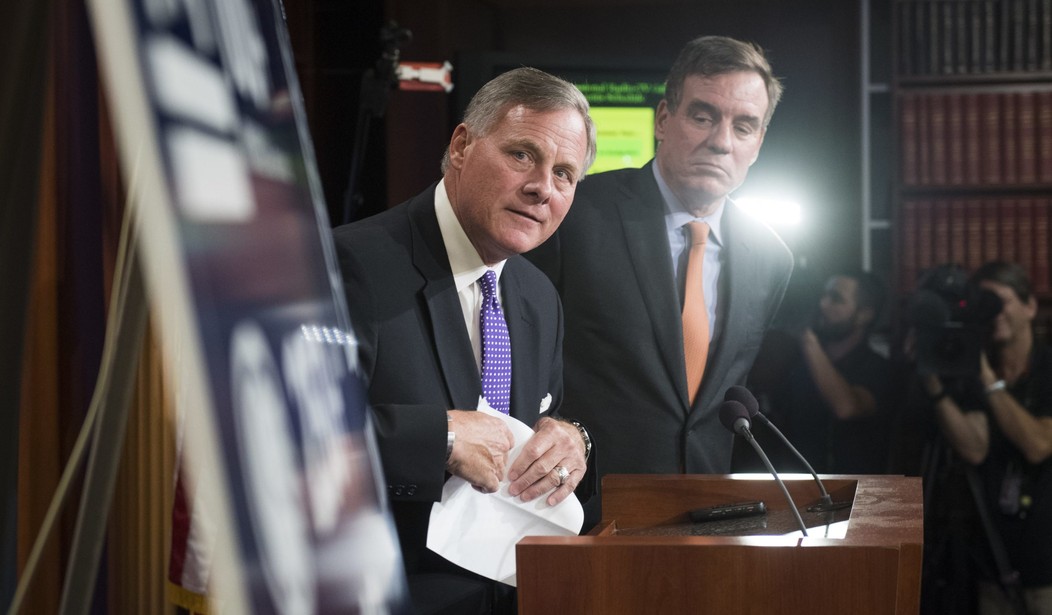WASHINGTON — The Senate Intelligence Committee released Tuesday their initial bipartisan review of the 2017 intelligence community assessment on Russian election interference, finding that additional evidence has surfaced to bolster the intel community’s initial assessment and also determining that no political pressure forced any conclusions from analysts.
Chairman Richard Burr (R-N.C.) said the committee “sees no reason to dispute the conclusions” of the intelligence community, which found that Russian conducted a campaign influence operation during the 2016 presidential campaign and favored Donald Trump. That assessment did not study whether or not election results were affected by Russian meddling.
“The committee continues its investigation and I am hopeful that this installment of the committee’s work will soon be followed by additional summaries providing the American people with clarity around Russia’s activities regarding U.S. elections,” Burr said.
While the House Intelligence Committee has stopped their investigation into the Russian ops, the Senate panel has been probing the matter for 16 months now.
“Our investigation thoroughly reviewed all aspects of the January 2017 ICA, which assessed that Russian President Vladimir Putin ordered an influence campaign to target our presidential election and to destabilize our democratic institutions,” Vice Chairman Mark Warner (D-Va.) said. “As numerous intelligence and national security officials in the Trump administration have since unanimously reaffirmed, the ICA findings were accurate and on point. The Russian effort was extensive and sophisticated, and its goals were to undermine public faith in the democratic process, to hurt Secretary Clinton and to help Donald Trump.”
“While our investigation remains ongoing, we have to learn from 2016 and do more to protect ourselves from attacks in 2018 and beyond,” he added.
The review, which teases a forthcoming comprehensive report that will undergo a classification review before any public release, calls the 2017 assessment “a seminal intelligence product with significant policy implications” for which extensive source documents were studied and interviews conducted.
“Russian activities in the run-up to the 2016 presidential election represented a significant escalation in a long history of Russian attempts to interfere in U.S. domestic politics. This escalation was made possible by cyber-espionage and cyber-driven covert influence operations, conducted as part of a broader ‘active measures’ campaign that included overt messaging through Russian-controlled propaganda platforms,” the review states.
The committee found the assessment to be “a sound intelligence product.”
“In all the interviews of those who drafted and prepared the ICA, the Committee heard consistently that analysts were under no politically motivated pressure to reach any conclusions. All analysts expressed that they were free to debate, object to content, and assess confidence levels, as is normal and proper for the analytic process,” continues the review. “As the inquiry has progressed since January 2017, the Committee has seen additional examples of Russia’s attempts to sow discord, undermine democratic institutions, and interfere in U.S. elections and those of our allies.”
“The ICA pointed to initial evidence of Russian activities against multiple U.S. state or local electoral boards. Since the ICA was published, the Committee has learned more about Russian attempts to infiltrate state election infrastructure, as outlined in the findings and recommendations the Committee issued in March 2018. While the ICA briefly discussed the activities of the Internet Research Agency, the Committee’s investigation has exposed a far more extensive.”
The Senate committee agreed with the assessment that “this influence campaign was approved by President Putin” and “Moscow sought to denigrate Secretary Clinton” while “Putin and the Russian Government developed a clear preference for Trump.”
On the intelligence community assessment that Russian intelligence services targeted “primary campaigns, think tanks, and lobbying groups they viewed as likely to shape future U.S. policies,” the committee “found this judgment supported by intelligence and further supported by our own investigation.”
“The FBI had a collection of reports a former foreign intelligence officer was hired to compile as opposition research for the U.S. election, referred to as the ‘dossier,’ when the ICA was drafted,” the Senate panel’s document adds. “However, those reports remained separate from the conclusions of the ICA. All individuals the Committee interviewed verified that the dossier did not in any way inform the analysis in the ICA – including the key findings – because it was unverified information and had not been disseminated as serialized intelligence reporting.”









Join the conversation as a VIP Member